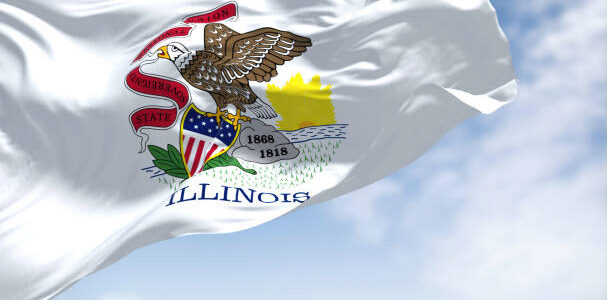BlogLine
Sharp change in Illinois tax law creates significant liabilities for non-Illinois companies
8/7/25

By: Nancy M. Reimer and Matthew R. Stersic
Accountants in Illinois or with clients with dealings in Illinois should take note of a sea change in Illinois tax law. Under Illinois’ newly passed H.B. 2755, Out-of-State and Out-of-Country businesses with dealings in Illinois are subject to state taxes. For businesses, the most notable changes may be the new sales tax rules and changes in the bases of taxation for GITLI, Pass-through entity sales and Multi-state Unitary Businesses.
Sales Tax Changes
Illinois, like most states in the last few years, amended its tax laws to levy sales taxes on out-of-state marketplaces selling tangible personal property in the state. With the passage of H.B. 2755, starting January 1, 2026, taxes will now apply not just to sellers of tangible personal property from out of state, but also to sellers of services via Illinois’s service occupation tax and service use tax.
Additionally, beginning January 1, 2026, Illinois will move away from its 200-transaction threshold for an out-of-state retailer to be taxed and shift to a $100,000 sales per year threshold.
GILTI
Illinois has also begun taxation of global intangible low-taxed income (“GILTI”). The 2017 Tax Cuts and Jobs Act began taxation of income from intangible assets from foreign countries. Illinois previously treated the income as dividends, subject to a 100% dividends-received deduction. H.B. 2755 cuts that deduction to 50%. This change applies to the tax year ending December 31, 2025, and going forward. It is important to note that the One Big Beautiful Bill Act contains significant changes to the GILTI provisions in the 2017 Tax Cuts and Jobs Act.
Pass-Through Entity Sales
Under previous Illinois law, owners of interests in pass through entities, either S-corporations or partnerships, with taxable activities in Illinois, would only be taxed in their state of residence. Starting June 16, 2025, taxes are now payable in Illinois and not just the state of residence based on an apportionment of the gain or loss on the sale in relation to Illinois apportionment factors for the prior three years. Apportionment factors are a newer idea in taxation and some states, such as Massachusetts, have run into difficulty getting the method accepted into their tax codes.
Adoption of “Finnigan” approach
Unitary businesses with entities operating in Illinois previously operated under the “Joyce” approach for recognition of sales, recognizing Illinois-sourced sales only from entities with an Illinois nexus. For tax years ending December 31, 2025, and beyond, the “Finnigan” method will apply, getting rid of the requirement that the sales must be from an entity with an Illinois nexus. Now the sales must just be part of the combined group of entities.
Other Changes:
Several other changes also apply including tax changes to:
- Create tax amnesty programs to waive interest and penalties to applicable taxes;
- Increase the rate of tax on tobacco products and expand definition to include products with nicotine;
- Eliminate certain exceptions to expense addback rules for companies with at least 80% of operations outside of the United States;
- Create an “Advancing Innovative Manufacturing” tax credit;
- Create a per wager tax on online or mobile sports wagering services;
- Include short-term rentals in collection of the hotel operators’ occupation tax; and
- Increase the intrastate telecommunications tax.
It is important for accountants to be aware of how these changes may affect both businesses and people that they advise or provide with tax or audit services. Should a need for legal advice or services arise, the FMG professional liability team is prepared to assist. Contact FMG attorneys Matthew Stersic and Nancy Reimer for more information at matthew.stersic@fmglaw.com and nancy.reimer@fmglaw.com.
Information conveyed herein should not be construed as legal advice or represent any specific or binding policy or procedure of any organization. Information provided is for educational purposes only. These materials are written in a general format and not intended to be advice applicable to any specific circumstance. Legal opinions may vary when based on subtle factual distinctions. All rights reserved. No part of this presentation may be reproduced, published or posted without the written permission of Freeman Mathis & Gary, LLP.
Share
Save Print
